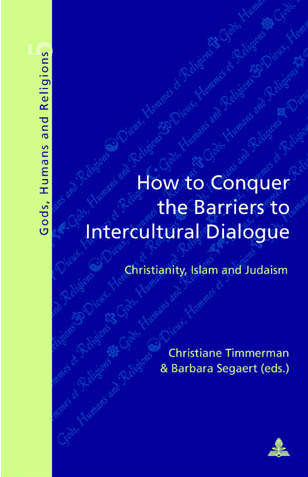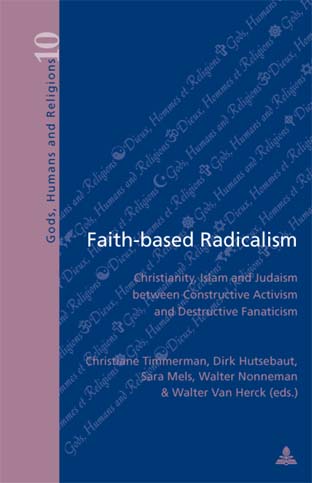UCSIA Summer School
an overview from 2003-2023
20 YEARS UCSIA SUMMER SCHOOL ON RELIGION, CULTURE AND SOCIETY
September 2023 marks the 20th anniversary of the UCSIA Summer School on Religion, Culture and Society. From 31 August to 1 September the 17th edition took place, a workshop marking the end of the 4th cycle, dedicated to a reflection among experts on the future development of a 5th cycle.
UCSIA
It all started with the inception of the University Centre Saint Ignatius Antwerp in 2003, as an emanation of the former Jesuit university that merged with two other state universities to form the current University of Antwerp. UCSIA was founded to continue the Jesuit academic endeavour by valorizing research results through scientific debate and public interaction on topics of religion, culture and social justice.
The summer school ‘Religion, culture and society’ was the first event that gave shape to the development of its future agenda.
The First Editions
The first edition on ‘Interreligious and Intercultural Dialogue. How to Conquer the Barriers between Christianity, Islam and Judaism’ of September 2003 lasted for 14 days and programmed almost as many different perspectives on the subject matter: peace and conflict, gender, human rights, nationalism and ethnicity, minorities, secularization, religious identity and religious responses to globalization. These topics were further developed in other UCSIA activities in the following years.
The positive reception of this first project by participating senior scholars and young researchers, as well as the local academic community and the general public (5 public lectures were offered at the City Hall and other external venues), led to the preparation of a second (10-day) summer school 4 years later on ‘Faith-based Radicalism. Christianity, Islam and Judaism between Constructive Activism and Destructive Fanaticism’.
Two volumes of these two events were published by PIE LANG. They formed the starting point of a long tradition of academic books based on international workshops, realized by UCSIA.
The Summer School Cycles
These two summer schools put UCSIA on the international scholarly map and created the necessary network for a more sustained effort of recurrent summer school cycles for which a pool of external faculty members was sought.
Each cycle consists of 3 annual one-week summer schools prepared by the faculty and is closed by a 3-day workshop (re-)inviting the most committed participants from the previous cycle and new potential faculty members to think about new topics and expertise for a next cycle.
Two cycles, from 2007-2010 and from 2011-2014, were led by Robert Hefner, Professor of Anthropology and International Relations, former Director of the Institute on Culture, Religion, and World Affairs (CURA) and current Director of the Centre for the Study of Asia at the School of Global Studies of Boston University, and John Hutchinson, then Reader in Nationalism in Europe at the Department of Government of London School of Economics.
The cycle of 2015-2018 could count on academic advice from Thijl Sunier, Professor of Cultural Anthropology and holder of the Chair ‘Islam in European Societies’ at the Free University of Amsterdam, and later on from cultural anthropologist David Henig of Utrecht University, who was still strongly involved in the last cycle of 2019-2023, with sociologist Jayeel Cornelio of Manila University, a former summer school participant, and anthropologist and sociologist of religion Angie Heo of the University of Chicago completing this faculty team.
Over these 20 years the summer school attracted 77 guest lecturers and welcomed 338 participants from 208 universities worldwide doing research in over 20 different disciplines.
Within UCSIA, academic responsibility for the summer school was assumed by its Academic Director, anthropologist Christiane Timmerman, an expert on Turkey, who later founded the Centre for Migration and Intercultural Studies at the University of Antwerp. She sadly passed away too early in 2019 and the centre has now merged with the University’s Network on Migration and Global Mobility and is led by former summer school participant Milena Belloni.
Religion and World Affairs
On the occasion of the closing session of the 4th cycle, where new topics, expertise and avenues of research needed to be identified to further develop the summer school, we recalled Robert Hefner’s thoughts on the role of the UCSIA summer school as expressed in his farewell address in 2014 (after 8 years of involvement).
According to him, UCSIA made a timely choice in opting to dedicate resources to a programme on religion and world affairs for two reasons.
Shifting paradigms on religion
First, by the mid-2000s, the world was well into its third decade of global revival, and into its second decade of researchers across a variety of disciplines concluding that the paradigms by which they had once thought about religion in the late modern world were inadequate or wrong.
Although patterns of secularity and religiosity showed significant variation by country (as Ronald Inglehart and Chris Welzel reminded us during the first summer school), the ethnically dominant populations of Western Europe seemed largely immune to any resurgent religious appeal. In several of the post-communist countries of Europe – the Czech Republic and former East Germany most spectacularly – rates of religious observance remained among the lowest anywhere in the late modern world. In the early 1990s, Roger Finke and Rodney Stark offered a supply-side model for why most of Old Europe was no longer religiously effervescent. It had to do with stifling state monopolies and curbs on religious supply, points where Western Europe does indeed differ from the US. A few years later, Ron Inglehart and Pippa Norris offered an alternative, existential-security model to explain the European pattern, one that preserved Europe’s position as the vanguard of a global secular future. When you are existentially secure, they arguably stated, you lose religion.
With Jose Casanova, Rajeev Barghava, Steve Bruce and Chris Welzel, we discussed these and other models of European secularity and concluded that all of them were Western-based and exceptional rather than the prototype for a future global security.
The UCSIA Summer School brought together global scholars at a time when Europe’s secular modernity and the secularization theories that sought to explain it were no longer seen as adequate or globally applicable.
The Rise of Interreligious Studies
Second, the UCSIA Summer School came at a time when the study of religion in modern world affairs was no longer limited to small groups of religious studies scholars and anthropologists of religion who insisted that religion is socially, politically and ethically important. From the mid-1990s, a remarkable expansion and blurring of interreligious studies had extended from anthropology, sociology and religious studies to include economics, political science, international relations, gender studies and other fields.
The UCSIA summer school offers a place where old and new scholars meet and experience the reality of the study of religion today, which is ‘joyously blurred, dizzyingly multidisciplinary and extremely policy relevant’, as Hefner put it.
Reflecting on pluralism
In short, the summer school invites us to reflect on the overarching challenge of pluralistic coexistence from different thematic perspectives, such as globalization, migration and multicultural citizenry which challenge traditional frameworks.
On the same occasion, Roger Finke, Professor of Sociology and Religious Studies and Director of the Association of Religion Data Archives at Pennsylvania State University), stated that there had been a sharp increase in the quantity and quality of international data collections on religion since 2000.
Surveys measuring religious beliefs and behaviour of individuals were held in an increasing number of countries, and cross-national collections were offering more detailed measures on the relationship between religion and other institutions, allowing to investigate the relationship between religion and other key social and political sectors. Moreover, the data required to move beyond Western and historically Christian nations to test theories in the global arena.
The most significant cross-national collections have been assembled around the topic of religion and state relations. These data allow us to go beyond tests of religious vitality or secularization. The abundance of measures is of obvious interest to political scientists, raising numerous questions about when and why the state will form alliances with religion or when the state will increase restrictions on religion. These data also allow us to test theoretical propositions about the origins of religious freedoms or religious establishments. Whereas political leaders often justify religious restrictions as a necessity to curb violence and maintain public order, both theory and data suggest otherwise. Social conflict is often a consequence of increased religious restrictions.
Finke then stated that we had only just started to understand the consequences of religion and state relations on other social institutions. Many research questions remained about how this relationship influences religion’s involvement in public discourse and political mobilization. There was still a need to better understand the relationship religious liberties hold with other liberties and with culture and society at large, as well as the link with ethnicity and other social identities, which are crucial in explaining the relationship between religion and social conflict. He concluded by saying that cross-national measures of religion need to be collected over a longer span of time, allowing us to more effectively map and explain social changes.
Looking towards the future of the UCSIA Summer School, UCSIA remains strongly committed to supporting junior scholars in the development of their academic work. From 2024 onwards, a new cycle of summer schools will be organized, consisting of expert lectures and individual tutoring by the faculty, paper presentations by the students and interdisciplinary discussion sessions.
Barbara Segaert
Project Coordinator Europe & Solidarity at UCSIA and organizer of the UCSIA Summer Schools from 2003 until 2009.
2003-2023 an overview
2003
Interreligious and Intercultural Dialogue – How to Conquer the Barriers between Christianity, Islam and Judaism?
With lecturers:
- Mohammed Arkoun, Professor of Islamic Studies, Sorbonne University;
- Ernst Hirsch Ballin, Professor of Public Law, University of Tilburg;
- Mohamed Larbi Bouguerra, University of Senghor;
- Catherine Cornille, Professor of Comparative Theology, Boston College and College of the Holy Cross;
- John Esposito, Professor of Religion, International Affairs and Islamic Studies, Georgetown University;
- Marie-Claire Foblets, Professor of Law and Anthropology, KU Leuven / University of Antwerp;
- François Houtart, Professor of Sociology, KU Leuven;
- Jan Kerkhofs, Professor of Sociology, KU Leuven;
- Chia Longman, Associate Professor Centre for Research on Culture & Gender, University of Ghent;
- Serif Mardin, Professor of Political Science, Sabanci University;
- Avishai Margalit, Professor at the Department of Philosophy, Hebrew Jerusalem University;
- Eugeen Roosens, Professor of Sociology and Cultural Anthropology, KU Leuven / UCL;
- Abdulkader Tayob, Professor of Islam, African Publics and Religious Values, Capetown University;
- Herman Teule, Professor of Eastern Christianity, KU Leuven;
- Caroline Vander Stichele, Professor of Biblical Studies, University of Tilburg;
- Christian Van Nispen tot Sevenaer, Professor of Philosophy and Islamic Studies, Coptic Catholic Seminar And Science Institute in Caïro / Centre Sèvres;
- Jacques Waardenburg, Professor of Religious Studies, University of Lausanne;
2005
Faith-based Radicalism: Christianity, Islam and Judaism between Constructive Activism and Destructive Fanaticism
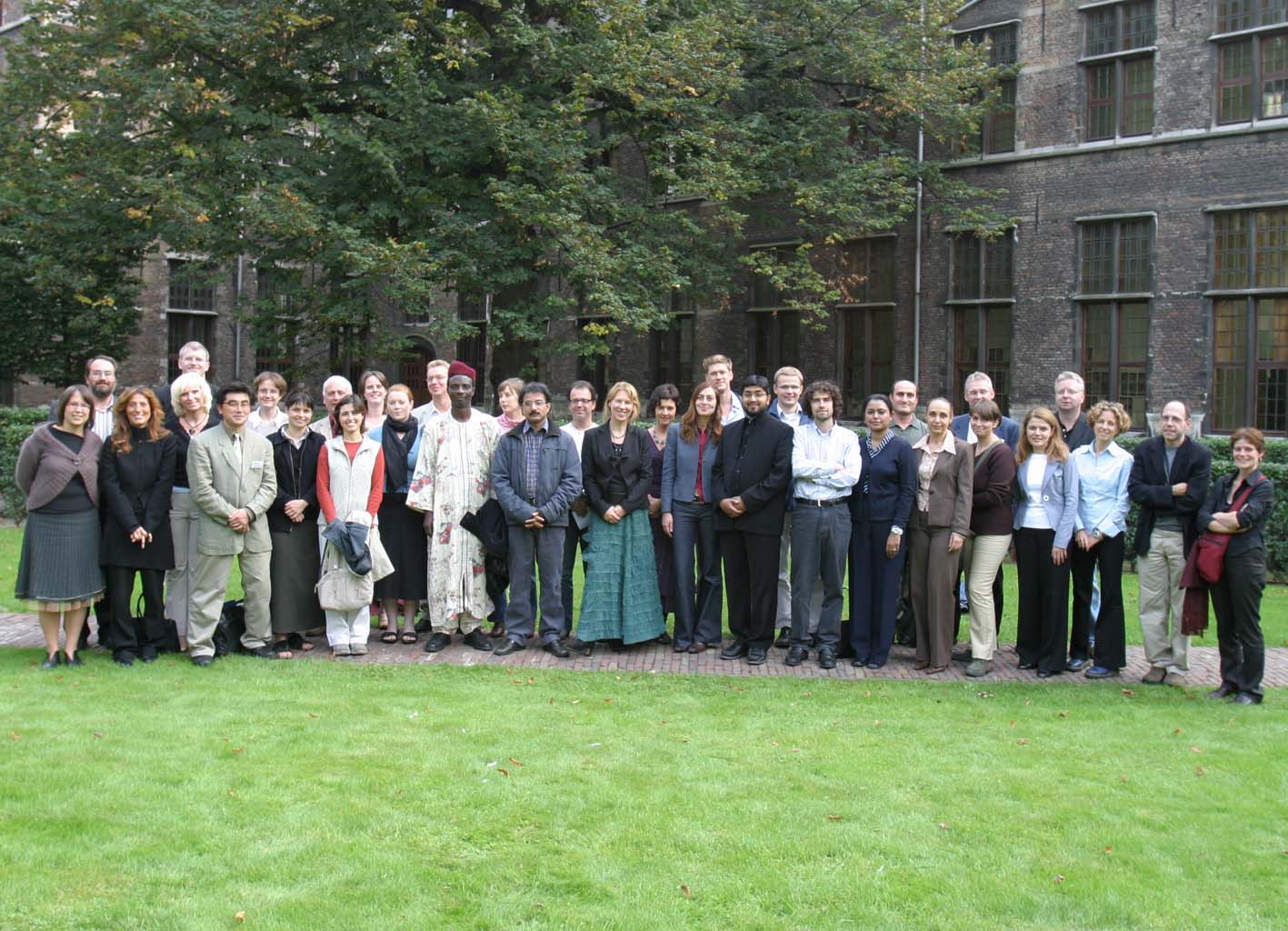
With lecturers:
- Scott Appleby, Professor of History, Notre Dame University;
- Naftali Brawer, London School of Jewish Studies;
- Mario Ferrero, Professor of Economics, University of Eastern Piedmont;
- Menachem Friedman, Professor of Sociology, Bar Ilan University;
- Shahin Gerami, Professor of Sociology, Missouri State University;
- Dirk Hutsebaut, Professor of Psychology, KU Leuven;
- Julie Kaizen, University of Antwerp;
- Michiel Leezenberg, Associate Professor at the Department of Philosophy, University of Amsterdam;
- Ahmad Moussalli, Professor Political Science & Islamic Studies, American University in Beirut;
- Walter Nonneman, Professor of Economics, University of Antwerp;
- Jerrold Post, Professor of Psychiatry, George Washington University;
- Christopher Rowland, Professor of Exegesis of Holy Scripture, University of Oxford;
- Anne Speckhard, Associate Professor of Psychiatry, Georgetown University Medical School and VUB;
- Willfried Spohn, Professor of Sociology, Free University of Berlin;
- Heinz Streib, Professor of Religious Education, Bielefeld University;
- Fraser Watts, Professor of Psychology & Religion, University of Cambridge
- Clyde Wilcox, Professor of Government, Georgetown University;
2007-2009
Religion, Culture & Society
2007
Religion, Culture & Society: Gender
With lecturers:
- Robert W. Hefner, Professor of Anthropology and Associate Director of the Institute on Culture, Religion and World Affairs at Boston University;
- John Hutchinson, Reader in Nationalism at the London School of Economics;
- Ronald Inglehart, Professor of Research at the Centre of Political Studies at the University of Michigan;
- Valentine M. Moghadam, Professor of Sociology and Women’s Studies and Director of the Women’s Studies Program at Purdue University;
- Chris Welzel, Professor of Political Science at the School of Humanities and Social Science at the International University Bremen.
2008
Religion, Culture & Society: Multiculturalism
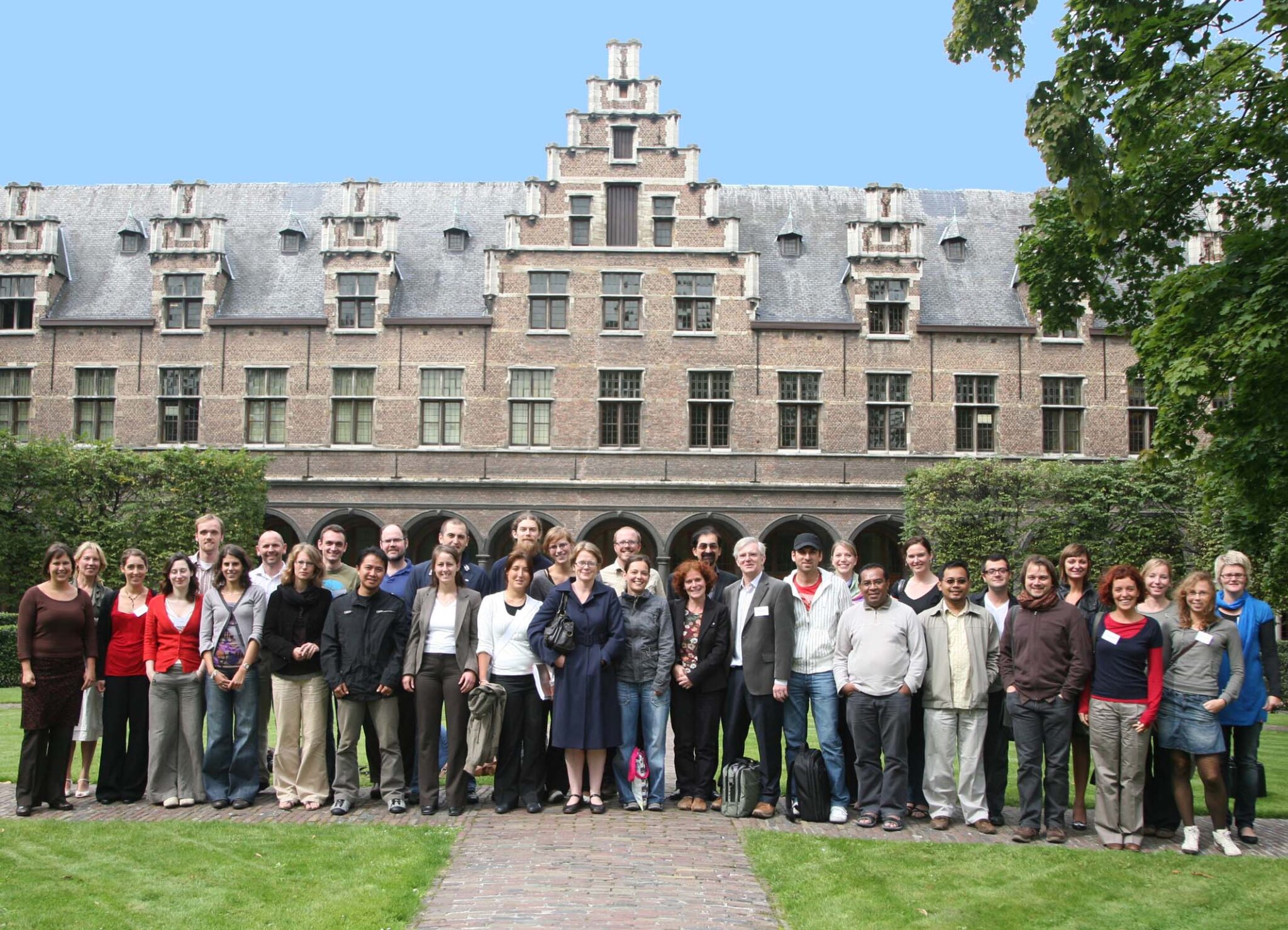
With lecturers:
-
Robert W. Hefner, Professor of Anthropology and Associate Director of the Institute on Culture, Religion and World Affairs at Boston University;
-
John Hutchinson, Reader in Nationalism at the London School of Economics;
-
Tariq Modood, Professor of Sociology, Politics and Public Policy, Director, University Research Centre for the Study of Ethnicity and Citizenship and Founding Co-editor of Ethnicities (Sage);
-
Chris Welzel, Professor of Political Science at Jacobs University Bremen.
2009
Religion, Culture & Society : Religion & Politics
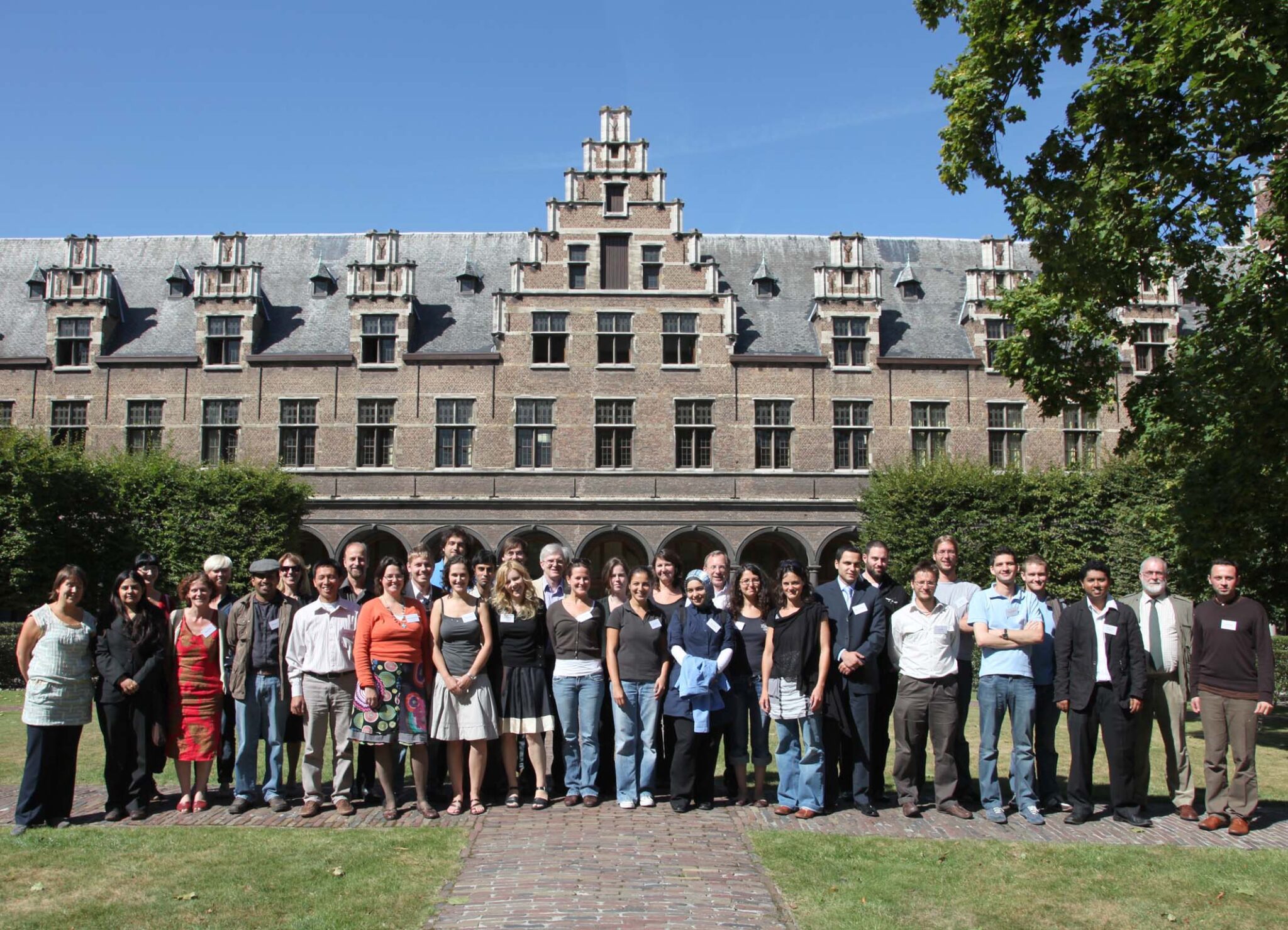
With lecturers:
-
Steve Bruce, Professor of Sociology at the University Of Aberdeen;
-
Robert W. Hefner, Professor of Anthropology and Associate Director of the Institute on Culture, Religion and World Affairs at Boston University;
-
John Hutchinson, Reader in Nationalism at the London School of Economics;
-
David Voas, Simon Professor of Population Studies, University of Manchester.
2010-2014
Religion, Culture & Society
2010
Religion & Culture in a Globalized World
With lecturers:
-
Robert W. Hefner, Professor of Anthropology and Associate Director of the Institute on Culture, Religion and World Affairs at Boston University;
-
John Hutchinson, Reader in Nationalism at the London School of Economics;
-
Peter Beyer, Professor at the Department of Classics and Religious Studies, University of Ottawa;
-
Jeremy Carrette, Professor of Religion and Culture, University of Kent;
-
Jocelyne Cesari, Director of the Islam in the West Programme, Harvard University;
-
Jeffrey Haynes, associate Head of Department, Research and Postgraduate Studies, and Director of the Centre for the Study of Religion, Conflict and Cooperation, London Metropolitan University;
-
David Martin, Emeritus Professor of Sociology at the London School of Economics;
-
Tulasi Srinivas, Assistant Professor Sociology and Anthropology, Department of Communication Studies, Emerson College.
2011
Religion and International Relations
With lecturers:
-
Robert W. Hefner, Professor of Anthropology and Associate Director of the Institute on Culture, Religion and World Affairs at Boston University;
-
John Hutchinson, Reader in Nationalism at the London School of Economics;
-
Peter Beyer, Professor at the Department of Classics and Religious Studies, University of Ottawa;
-
Scott M. Thomas, Senior Lecturer in International Relations and the Politics of Developing Countries, University of Bath.
2012
Secularism(s) and Religion in Society
With lecturers:
-
Rajeev Bhargava, Senior Fellow and Director of the Centre for the Study of Developing Societies (CSDS), Delhi and Formerly Professor of Political Theory, JNU and University of Delhi;
-
Robert W. Hefner, Professor of Anthropology and Associate Director of the Institute on Culture, Religion and World Affairs at Boston University;
-
John Hutchinson, Reader in Nationalism at the London School of Economics;
-
Peggy Levitt, Professor of Sociology at Wellesley College, Co-Director of the Transnational Studies Initiative at Harvard University and International Fellow at the Faculty of Social Sciences, VU University Amsterdam.
2013
Religion, Reform and the Challenge of Plurality
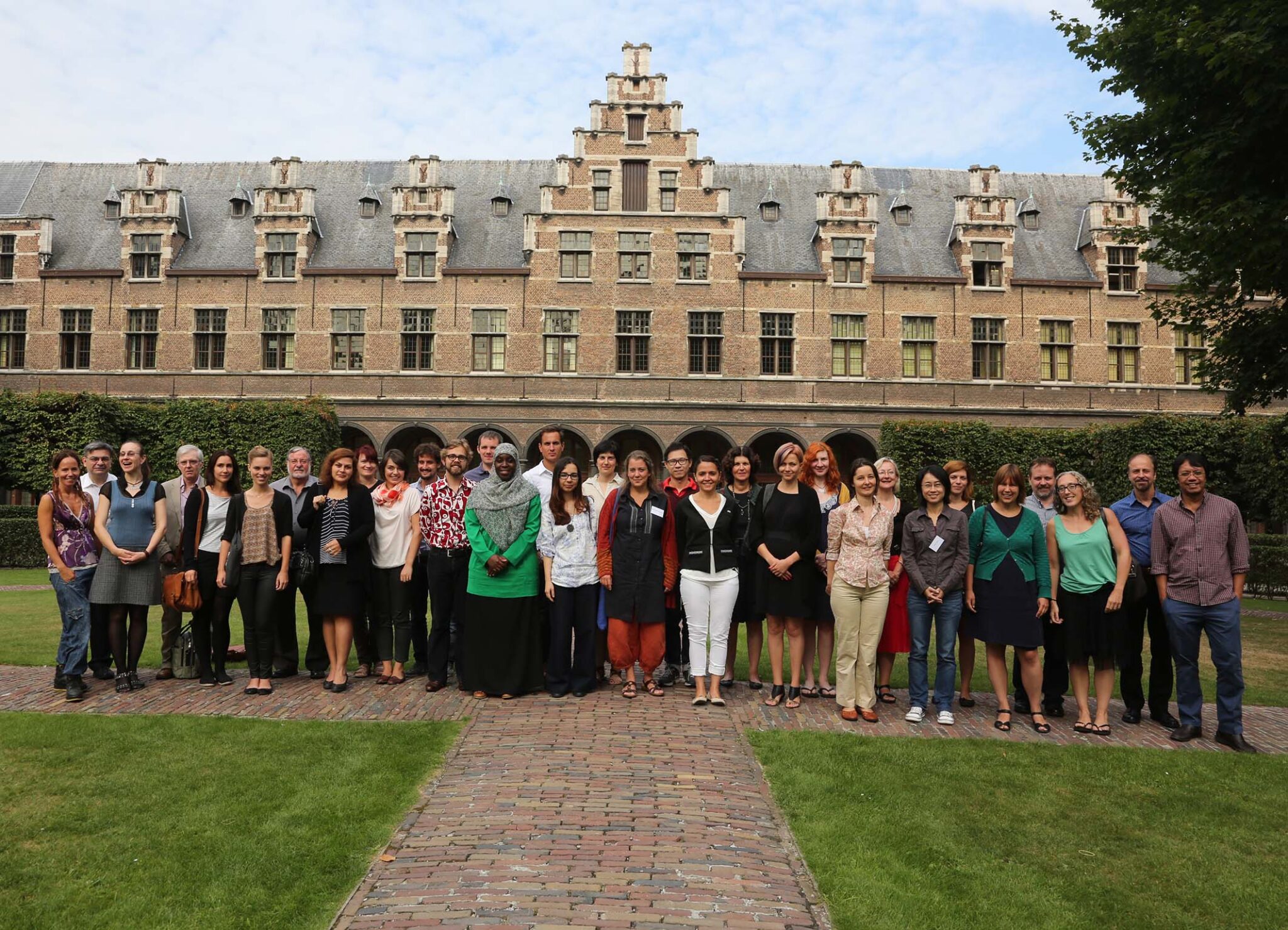
With lecturers:
-
José Casanova, Professor of Sociology of Religion, Berkley Center for Religion, Peace and World Affairs, Georgetown University, Washington DC;
-
Robert W. Hefner, Professor of Anthropology and Associate Director of the Institute on Culture, Religion and World Affairs at Boston University;
-
John Hutchinson, Reader in Nationalism at the London School of Economics;
-
Louise Ryan, Professor of Sociology and Co-Director of the Social Policy Research Centre, Middlesex University, London.
2014
Religion & Culture in a Globalized World
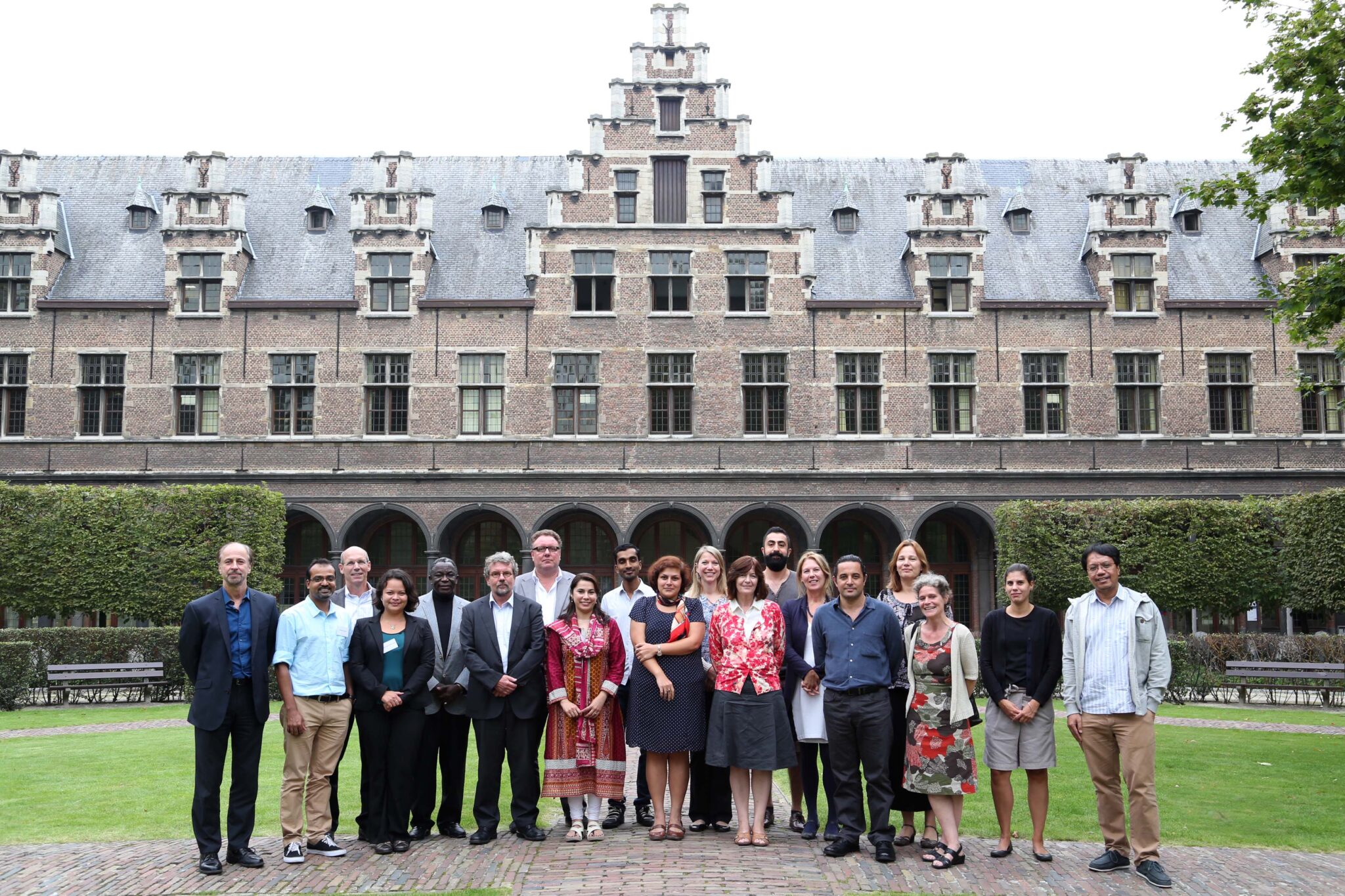
With lecturers:
-
Roger Finke, Professor of Sociology and Religious Studies & Director of the Association of Religion Data Archives, Department of Sociology and Criminology, Pennsylvania State University;
-
Robert W. Hefner, Professor of Anthropology and Director of the Institute on Culture, Religion and World Affairs at Boston University;
-
Dick Houtman, Professor of Sociology of Culture and Religion at the Centre for Sociological Research at KU Leuven, and faculty fellow at Yale University’s Centre for Cultural Sociology;
-
John Hutchinson, Reader in Nationalism at the London School of Economics;
-
Jacob Olupona, Professor of African Religious Traditions, with a joint appointment as Professor of African and African American Studies in the Faculty of Arts and Sciences, Harvard Divinity School;
-
Juliane Schober, Professor of Anthropology of Religion and Director of the Centre for Asian Research and Professor of Religious Studies at Arizona State University;
-
Thijl Sunier, Professor Cultural Anthropology and chair ‘Islam in European societies’ at the VU University Amsterdam.
2015-2017
Religion, Culture and Society: Entanglements and Confrontation
2015
Is Faith-based Violence Religious?
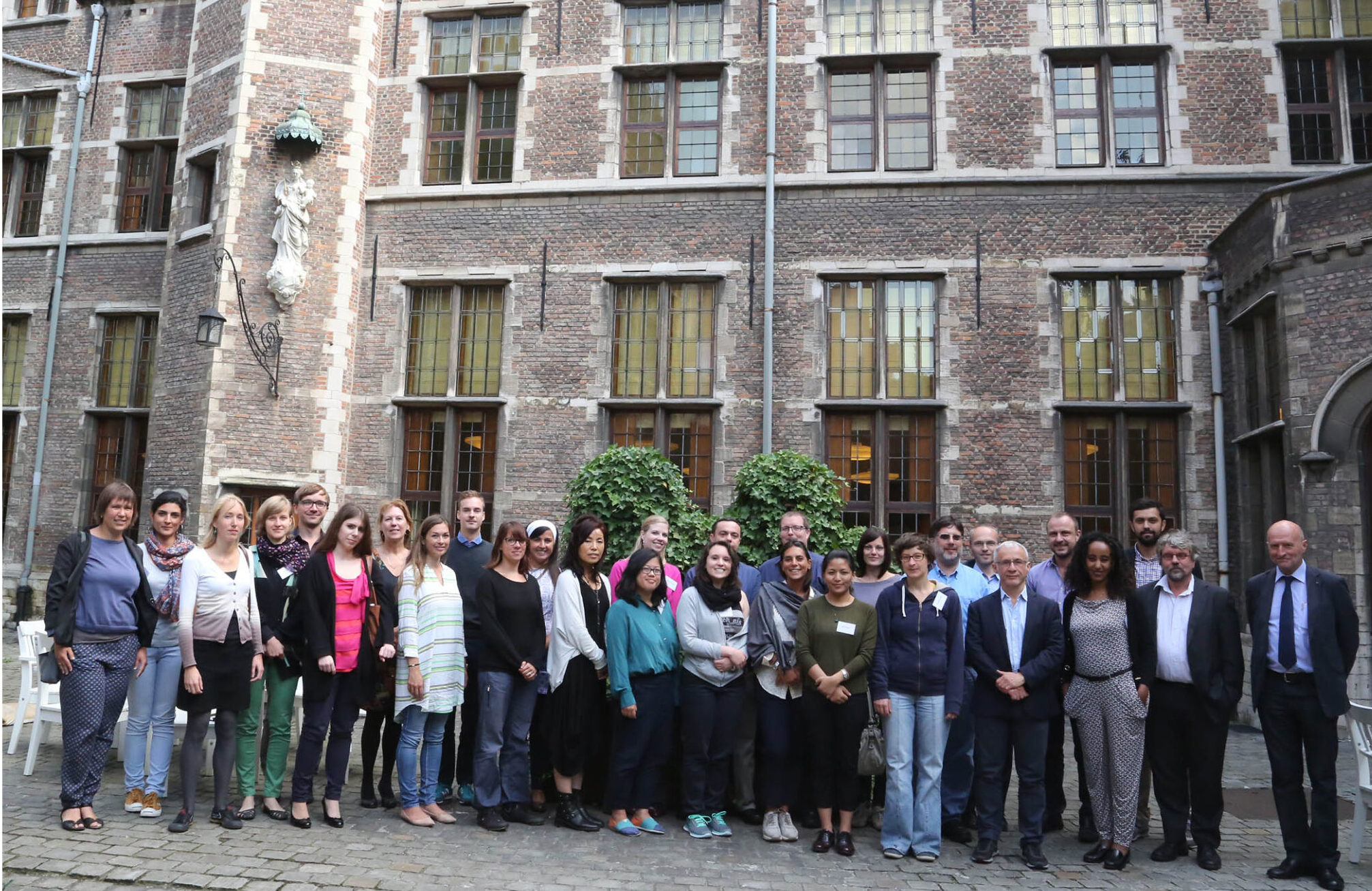
With lecturers:
-
Jonathan Fox, Director of the Religion and State Project and Professor at the Faculty of the Political Studies, Bar-Ilan University; Senior research fellow at Bar-Ilan’s Begin-Sadat Center for Strategic Studies;
-
Peter Neumann, Professor of Security Studies at the Department of War Studies, King’s College London, and Director of the International Centre for the Study of Radicalisation (ICSR);
-
Marat Shterin, Senior Lecturer in the Sociology of Religion at the Department of Theology and Religious Studies, King’s College London;
-
Thijl Sunier, Professor Cultural Anthropology and chair ‘Islam in European societies’ at the Faculty of Social Sciences, VU University Amsterdam.
2016
Public Religion, Spirituality & Lifestyle
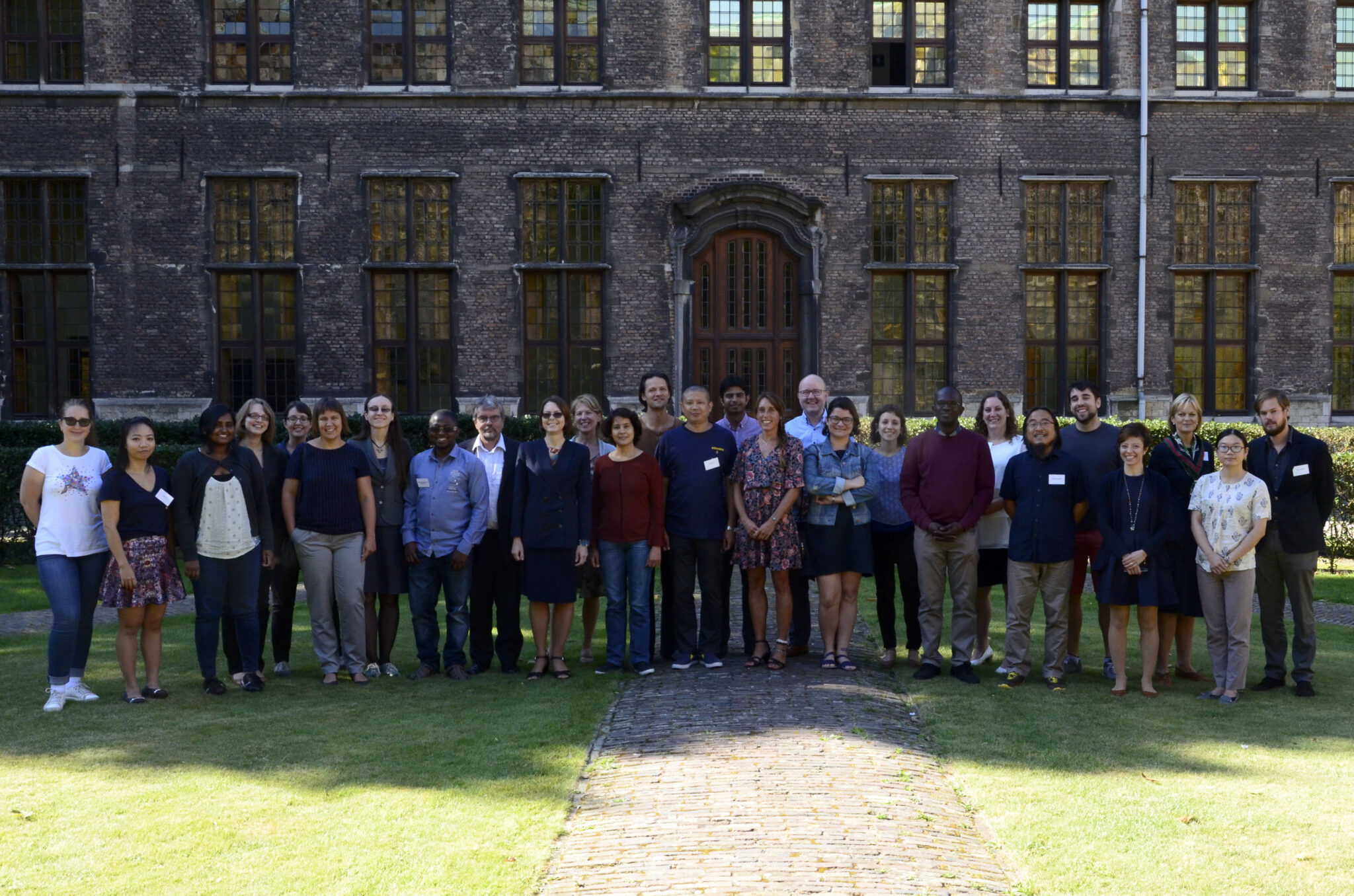
With lecturers:
-
Candy Gunther Brown, Religious Studies, Indiana University;
-
Thijl Sunier, Cultural Anthropology, Faculty of Social Sciences, VU University Amsterdam;
-
Linda Woodhead, Sociology of Religion, Lancaster University;
-
Adam Yuet Chau, Faculty of Asian and Middle Eastern Studies, University of Cambridge.
2017
Between Market, State and Religion: Economic Realities, Social Justice and Faith Traditions
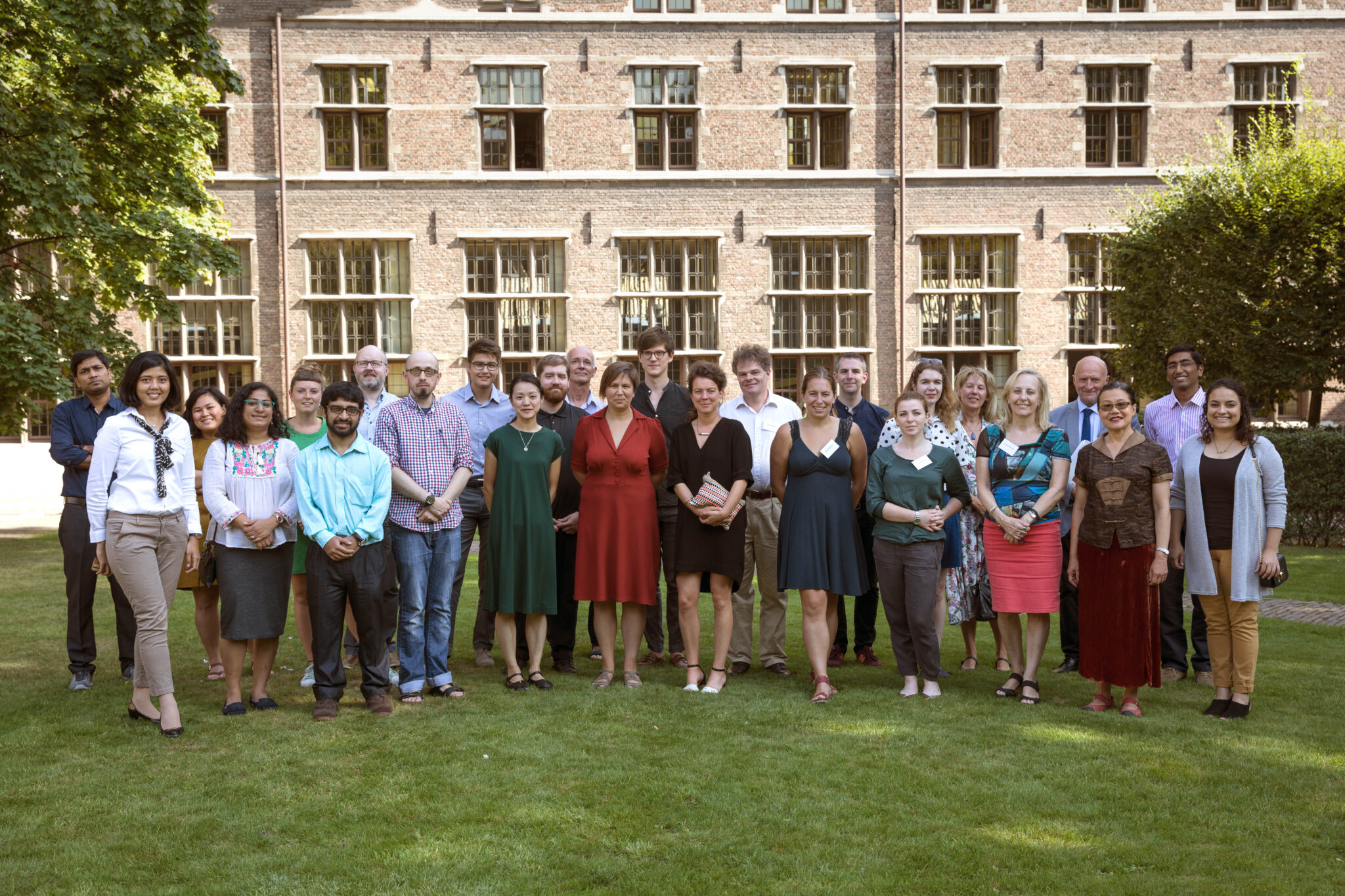
With lecturers:
-
David Henig, Associate Professor of Cultural Anthropology, Utrecht University
-
Jennifer Olmsted, Professor of Economics and Director of Middle East Studies at Drew University;
-
Paul Oslington, Professor of Economics and Dean of Business MPhil and PhD Program Director Alphacrucis College Australia;
-
Mayfair Yang is Professor of Religious Studies & East Asian Languages & Cultural Studies at the University of Santa Barbara, California.
2018-2022
Religion & Mobility
2018
Religion & Culture in a Globalized World
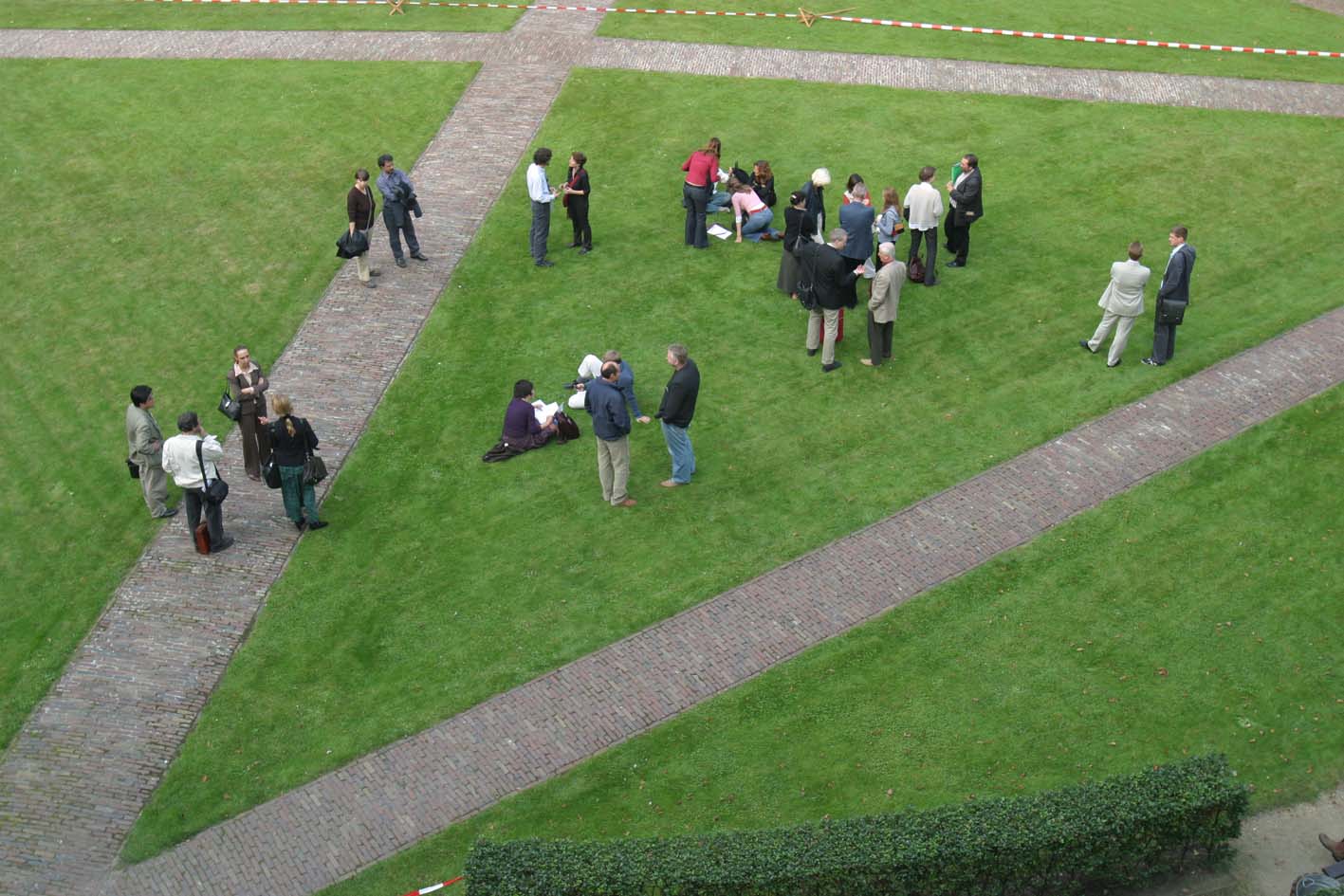
With lecturers:
-
Milena Belloni, postdoctoral researcher, CeMIS, University of Antwerp;
-
Jayeel Cornelio, Associate Professor of Sociology, Ateneo de Manila University;
-
Julius Bautista, Associate Professor at the Center for Southeast Asian Studies, Kyoto University;
-
David Henig, Associate Professor of Cultural Anthropology, Utrecht University;
-
Stefania Palmisano, Associate Professor in the Sociology of Religion at the University of Turin, Italy.
2019
Religion, Mobility & Materiality
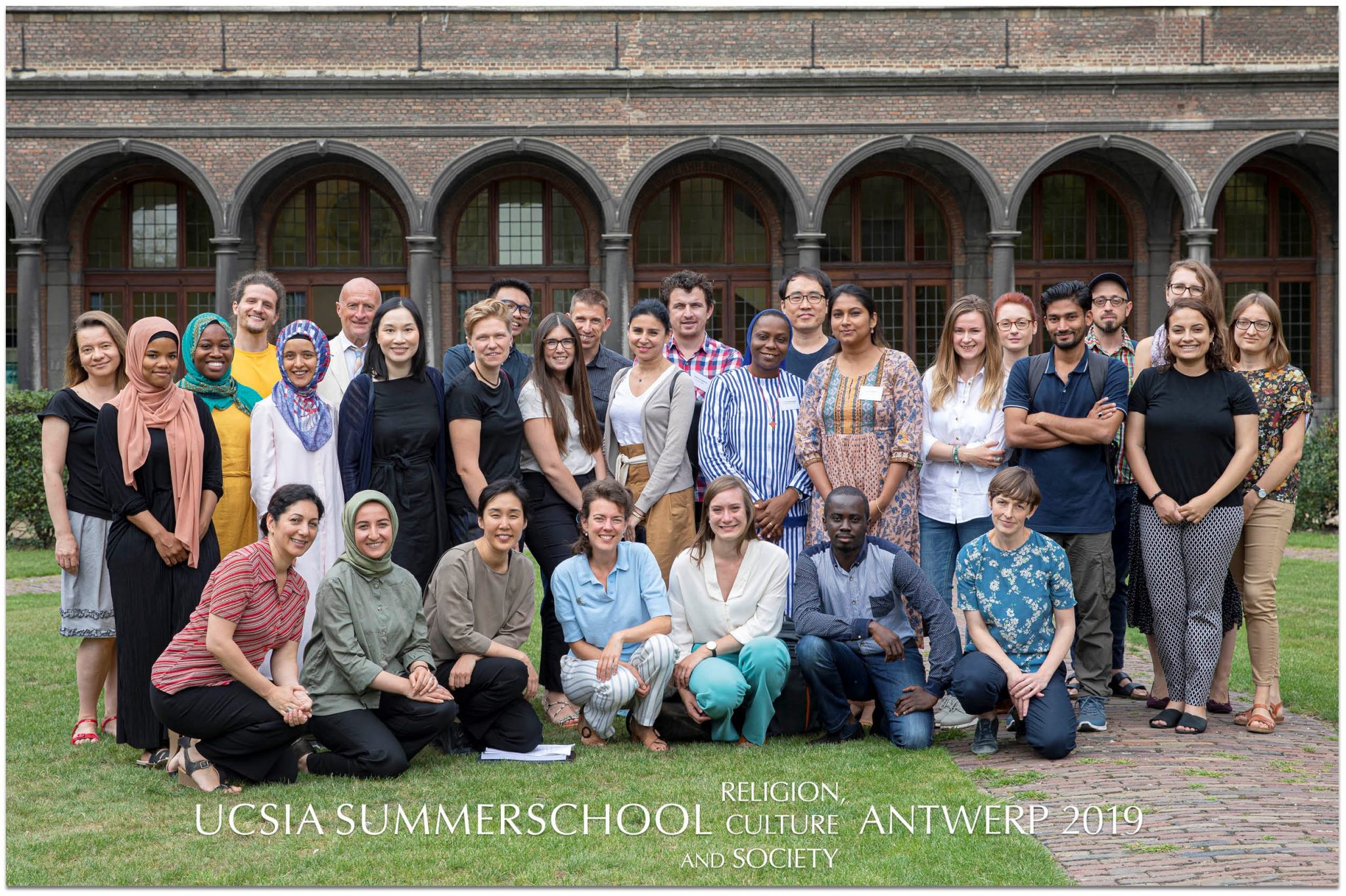
With lecturers:
-
Jayeel Cornelio, Associate Professor of Sociology, Ateneo de Manila University;
-
David Henig, Associate Professor of Cultural Anthropology, Utrecht University;
-
Angie Heo, Assistant Professor of Anthropology and Sociology of Religion, Divinity School University of Chicago.
2020-21
Religion, Mobility & Politics
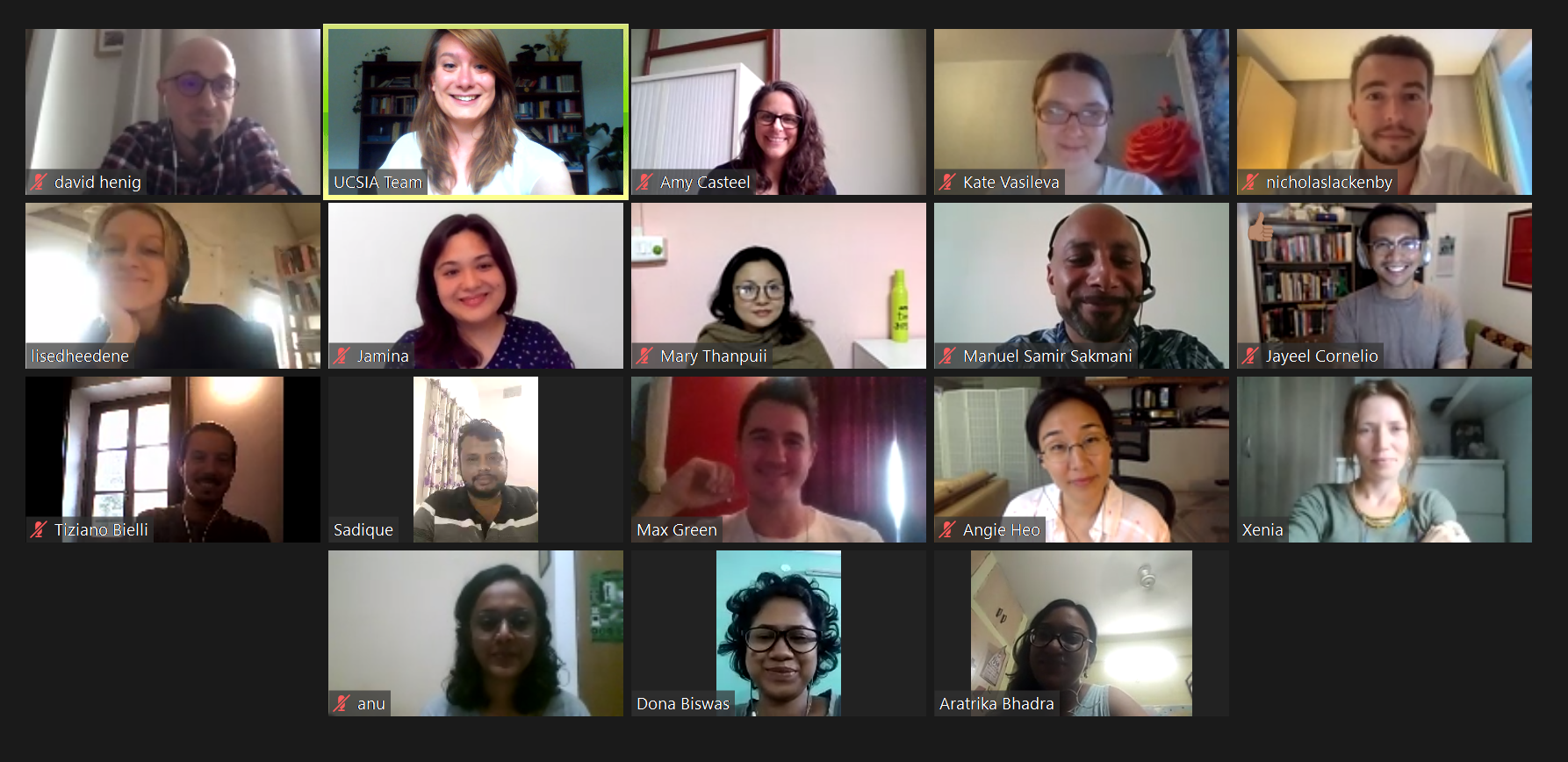
With lecturers:
-
Jayeel Cornelio, Associate Professor of Sociology, Ateneo de Manila University;
-
David Henig, Associate Professor of Cultural Anthropology, Utrecht University;
-
Angie Heo, Assistant Professor of Anthropology and Sociology of Religion, Divinity School University of Chicago.
2022
Religion, Mobility & Economy
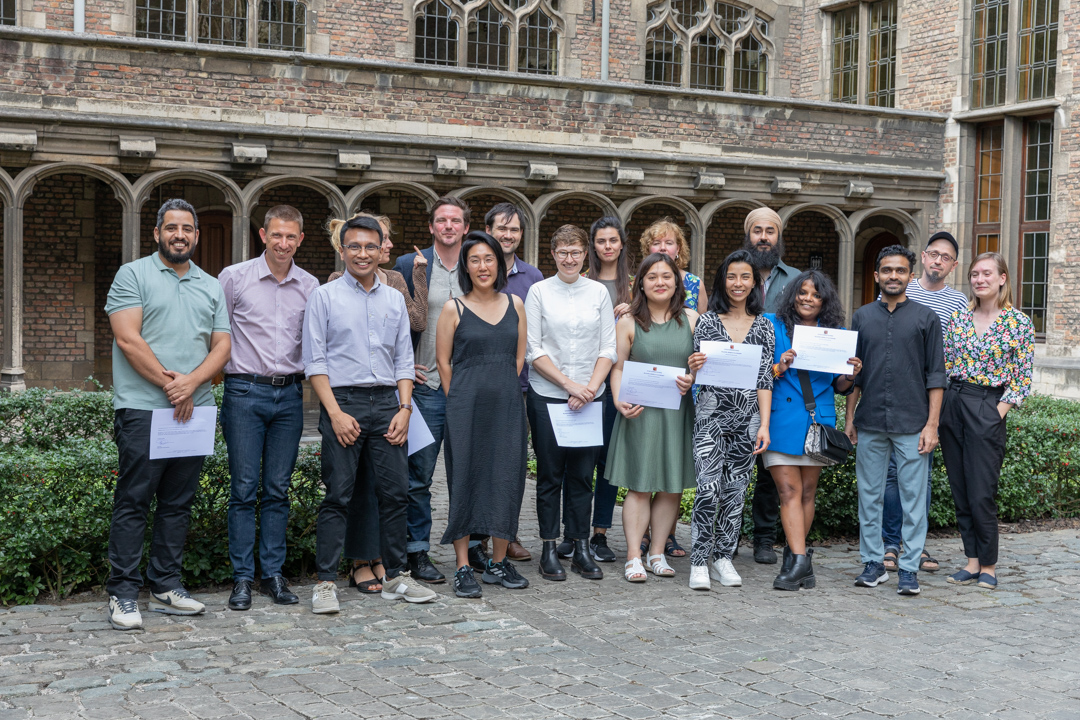
With lecturers:
-
Jayeel Cornelio, Associate Professor of Sociology, Ateneo de Manila University;
-
David Henig, Associate Professor of Cultural Anthropology, Utrecht University;
-
Angie Heo, Assistant Professor of Anthropology and Sociology of Religion, Divinity School University of Chicago
2023
Religion, Culture & Society: mapping the field
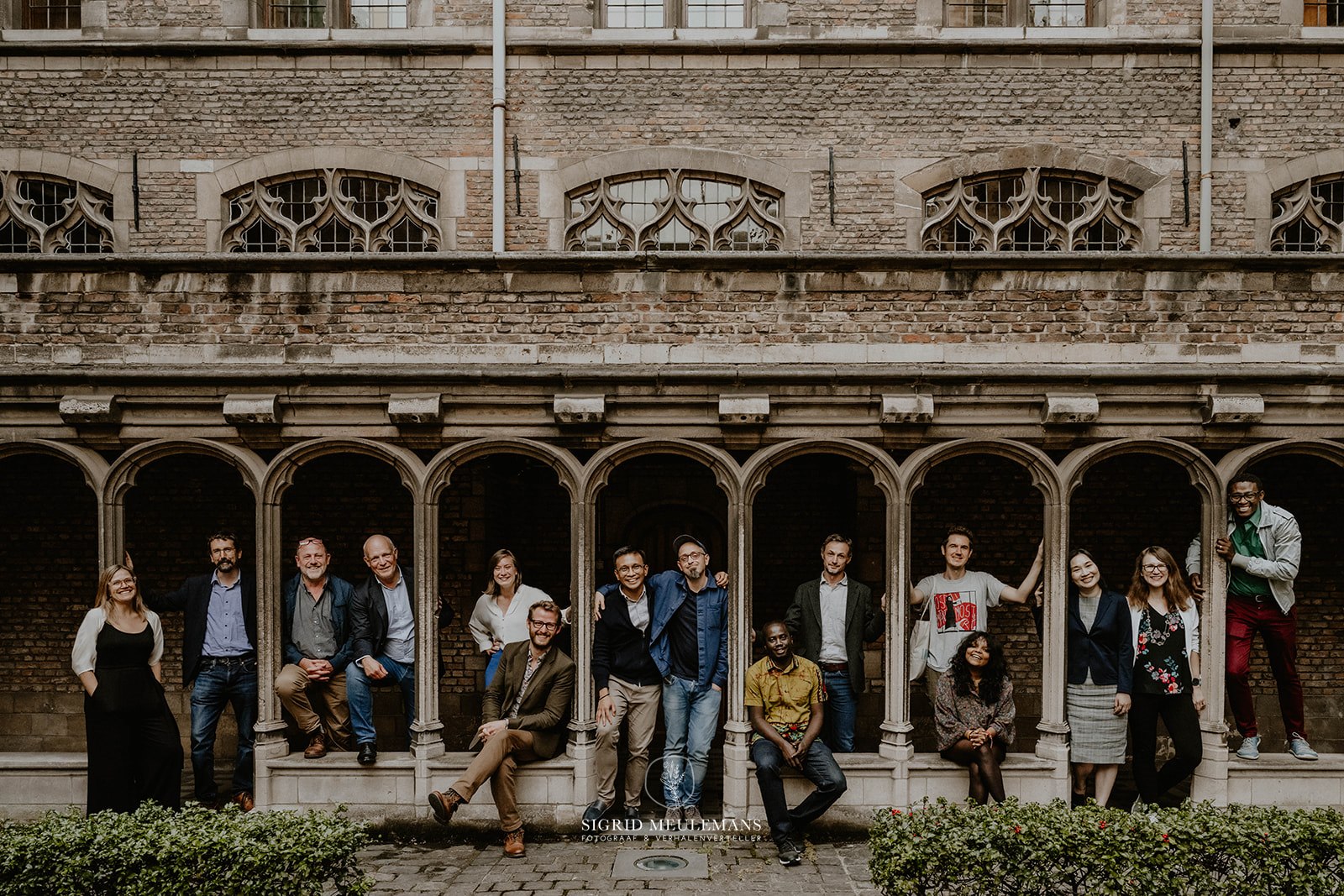
With lecturers:
-
Jayeel Cornelio, Professor of Development Studies, Ateneo de Manila University;
-
Siphiwe Dube, Senior Lecturer Political Studies, University of the Witwatersrand;
-
Jude Lal Fernando, Associate Professor Contextual Theologies and Interfaith Relations, Trinity College Dublin;
-
Vlad Naumescu, Associate Professor of Social Anthropology, Central European University;
-
Elayne Oliphant, Associate Professor of Anthropology and Religious Studies (New York University)
-
Cornelia Richter, Professor of Systematic Theology and Hermeneutics, University of Bonn
Copyright 2018 UCSIA Summer School

